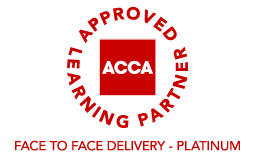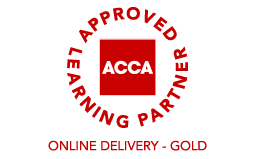According to the website www.authority.org, accounting was the 10th most popular course in America, with thousands of students receiving their bachelor’s degree last year. Statista also reported that more than 1.4 million accountants and auditors were working in the country in 2022.
These facts show the popularity of accounting as a degree and profession in the USA, which are indicative of its status in other countries. They may also compel you to research the typical accountant tasks and find out why it is a field worth getting into.
If you’re thinking of pursuing accountancy as a career, this article gives you an overview of this field, including what an accountant does and other things you need to know about this profession.
What Does an Accountant Do?
An accountant has the important job of keeping and interpreting financial records. They are responsible for various finance-related tasks for individual clients or larger organizations employing them.
Accountants have different tasks and roles based on their area of expertise. However, the typical accounting duties they perform on a daily basis include the following:
Audit preparation – creating financial reports and documents for external and internal audits.
Bookkeeping – maintaining the general ledger, reconciling revenues and expenses, and making financial statements.
Budgeting and forecasting – creating and managing budgets and forecasting financial performance for specific periods.
Compliance – ensuring their company or client conforms with accounting regulations, standards and principles.
Financial analysis – analyzing financial data to recognize trends and discrepancies to find ways to improve processes and the organization’s overall financial health.
Issuing invoices – preparing and issuing invoices to their employer’s customers and keeping track of who has and has not paid them.
Tax preparation – organizing and analyzing financial information, preparing and filing tax returns for and on behalf of their clients or employers.
Accountants also communicate with their employers and colleagues to obtain and provide information and guidance on various financial matters. Additionally, they use different accounting software and other tools in their daily work.
Types of Accountants
Accounting professionals can take on different accountant roles. Below is an overview of the most popular ones:
Auditor
An auditor evaluates their employer’s financial records to ensure that they are accurate and comply with tax regulations and other accounting standards. They also identify discrepancies, offer advice to correct them and analyze processes to ensure the business or individual is safe from fraud.
Additionally, these professionals regularly inspect their employer’s accounting books and systems.
Certified Public Accountant (CPA)
A CPA is an accounting professional who passed the CPA exam and met specific licensure requirements.
Their responsibilities include ensuring their employers adhere to general accounting principles, procedures and standards, auditing, consulting, financial planning and reporting. CPAs can select their specialization, such as forensic auditing or taxation.
Chartered Accountant (CA)
A CA uses their expertise to guide and help implement their client’s financial plans and ensure all their tax activities are compliant with all relevant regulations. Their accounting responsibilities include planning taxes, controlling, analyzing, and auditing financial statements.
This role involves completing the Association of Chartered Certified Accountants or ACCA certification courses and passing the exams. An ACCA qualification is internationally recognized and highly sought by companies.
Management Accountant
A management accountant helps business leaders and senior managers make strategic decisions through budgeting, financial planning and reporting, and conducting profitability analysis and risk management. Cost and staff accountants fall under this category.
Management accountants have the option of obtaining the Certified Management Accountant (CMA) qualification to obtain a professional, internationally recognized credential.
Financial Accountant
A financial accountant maintains a company’s record of financial transactions and creates reports based on all gathered data. They also manage their employer’s accounts payables, receivables and general ledger.
Accountants who specialize in this field investigate and correct financial discrepancies and help prepare detailed financial statements as well.
Government Accountant
A government accountant ensures the federal, state or local government body spends taxpayer money wisely and prudently. They also help these agencies plan their activities and budgets for a fiscal year.
Some government accountants work for agencies that audit private businesses and individuals and investigate white-collar crimes.
Forensic Accountant
A forensic accountant analyzes financial records to ensure they comply with accounting standards and laws. They are trained to uncover errors, omissions and fraud in financial documents.
These professionals are usually involved in investigation or litigation support and serve as expert witnesses in court trials.
Investment Accountant
An investment accountant typically works at an asset management firm, brokerage and other companies in the financial services industry. Their specialization covers equities, stocks and bonds, commodities, exchange-traded products (ETPs) and other investment vehicles.
These accounting professionals work with brokers and asset managers to manage their client’s or company’s investments. They also help develop financial strategies and ensure their employer complies with industry-related federal and state regulations.
How to Start an Accounting Career
If an accounting career appeals to you, completing a bachelor’s degree in accounting or finance is the first step.
After completing your degree, look for internship opportunities or an entry-level position and work your way up the career ladder. Throughout your journey, you can choose a specialization and acquire the relevant experiences and qualifications.
For instance, if you want to be a chartered accountant, you need to complete up to 13 ACCA exams across three levels: Applied Knowledge, Applied Skills and Strategic Professional. You also have to meet the relevant experience required by the organization.
You can also pursue postgraduate programs, such as a master’s degree in accounting or business administration or a Chartered Financial Analyst or CFA course, to advance your career.
A career in accounting can be rewarding in more ways than one. With your dedication and well-thought-out plan, you can be part of this exciting and lucrative industry.
Contact us for more information about our ACCA and CFA courses.



